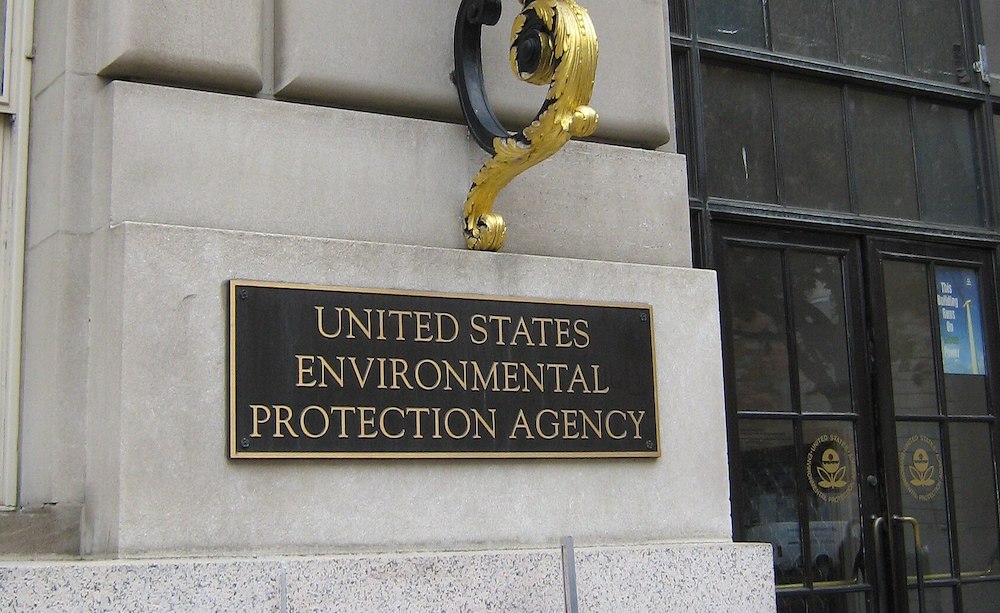
- Details
- By Brian Edwards
- Energy | Environment
A federal appeals court dealt a significant blow Tuesday to tribal clean energy initiatives, ruling that the EPA can proceed with terminating $20 billion in climate grants that included approximately $1.5 billion earmarked for Native American communities.
The D.C. Circuit Court of Appeals reversed a lower court injunction in a 2-1 decision, finding that grant recipients must pursue their claims in the specialized Court of Federal Claims rather than federal district court.
Writing for the majority, Judge Neomi Rao concluded that the grant recipients' claims were “essentially contractual” and belonged in the Court of Federal Claims, which can only award monetary damages, not the injunctive relief sought by the organizations. In a sharp dissent, Judge Nina Pillard, an Obama appointee, argued the majority reached “the wrong conclusion at every step” and accused the Trump administration of “spurious” investigations into the grants.
The ruling overturns Judge Tanya Chutkan's April preliminary injunction that had prevented EPA from terminating the grants and required Citibank to disburse funds to the organizations. EPA Administrator Lee Zeldin terminated the grants in March, citing concerns about oversight and potential conflicts of interest in the award process, though the agency failed to provide evidence of fraud when grantees sued, according to prior Tribal Business News reporting.
The terminated funding was part of the $27 billion Greenhouse Gas Reduction Fund established by the Inflation Reduction Act. Of that total, $20 billion was used to create what are known as “green banks” — nonprofit financing institutions that use public money to attract private investment for clean energy projects. The green bank funding supported two programs: the National Clean Investment Fund and Clean Communities Investment Accelerator, which committed $1.5 billion specifically for tribal communities.
Climate United Fund, one of the largest green bank recipients with $6.97 billion, had pledged $620 million for tribal projects and already committed $63 million in pre-construction financing for solar installations in partnership with tribal governments in Eastern Oregon and Idaho, according to court documents. The organization also launched a $30 million technical assistance program that approved 22 awards to tribes and Native-serving organizations across 18 states, including support for the Quapaw Nation of Oklahoma's planned community microgrid.
The court decision compounds mounting challenges facing tribal clean energy programs under the Trump administration. Last month, Zeldin terminated the separate $7 billion Solar for All program, eliminating more than $500 million in tribal solar funding that supported 35 tribes across the Great Lakes region and other communities nationwide.
That Solar for All termination devastated tribal energy planning, according to Daniel Wiggins Jr., executive director of the Midwest Tribal Energy Resources Association. His organization lost $62 million in Solar for All funding and had developed strategies supporting all 35 member tribes in the Great Lakes region.
“This program was probably one of a kind - we had strategies in place to target every reservation in the Midwest,” Wiggins told Tribal Business News following last month's termination. “Pulling this money out from under us isn't just devastating to the tribes, but to the communities and regions where those tribes reside.”
Climate United CEO Beth Bafford said the organization would continue fighting Tuesday's decision. “We stand firm on the merits of our case: EPA unlawfully froze and terminated funds that were legally obligated and disbursed,” she said in a statement.
EPA praised the ruling in a statement. “It's fantastic to see reason prevail in the court system,” EPA spokesperson Brigit Hirsch said in a statement. “Administrator Zeldin cancelled these grants due to well documented concerns about self-dealing and conflicts of interest, unqualified recipients, and intentionally reduced agency oversight.”
The court withheld its mandate, meaning Chutkan's injunction remains temporarily in place while recipients decide whether to seek review by the full D.C. Circuit or appeal to the Supreme Court. If litigation ultimately proceeds in the Court of Federal Claims, it could take more than a year to reach resolution.
